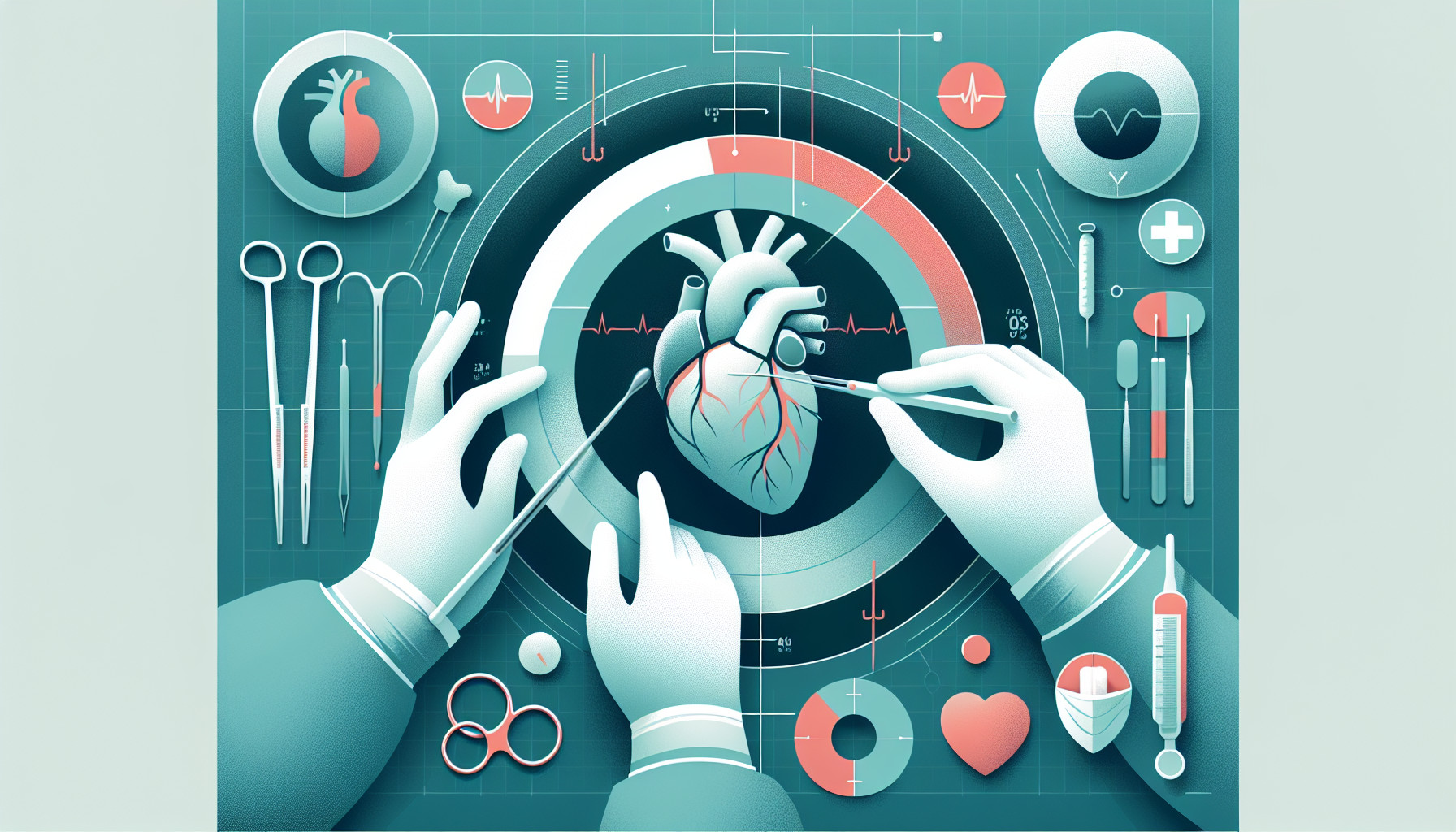Our Summary
The research paper is about a study conducted on patients who suffered from a common type of irregular heartbeat (atrial flutter) which involves the right side of the heart. This condition is usually treated with a method called radiofrequency catheter ablation. The study wanted to find out how this treatment affects the size and functioning of the heart.
Researchers looked at the medical records of 468 patients who underwent this treatment between 2010 and 2019. After removing patients who had other heart-related conditions or didn’t have initial heart scans, they were left with 130 patients. Data from heart scans were analyzed before the treatment and within a year after the treatment. However, they were only able to get follow-up data for 55 patients.
The average age of these 55 patients was around 64 years and about 15% were female. The results showed that the treatment significantly improved the heart’s pumping ability, reduced the size of the heart’s left and right atrium, and improved the strain or the stretching ability of the left atrium. Half of the patients had at least a 10% improvement in their heart’s pumping ability.
While the long-term effects of the treatment are still unknown, the study concluded that restoring the regular heart rhythm in patients with this type of irregular heartbeat is associated with improvements in the size and function of the heart.
FAQs
- What was the purpose of the study conducted on patients who underwent radiofrequency catheter ablation treatment?
- What were the observed effects of radiofrequency catheter ablation treatment on the heart’s size and functioning according to the study?
- Is the long-term impact of radiofrequency catheter ablation treatment on patients with atrial flutter known?
Doctor’s Tip
One helpful tip a doctor might tell a patient about cardiac ablation is to follow a healthy lifestyle after the procedure. This includes maintaining a balanced diet, staying physically active, avoiding smoking, and managing stress levels. These lifestyle changes can help improve the overall health of the heart and reduce the risk of future heart-related issues.
Suitable For
Patients who are typically recommended cardiac ablation are those who suffer from certain types of irregular heartbeats, such as atrial flutter or atrial fibrillation. These patients may have symptoms such as palpitations, shortness of breath, chest pain, fatigue, or dizziness. Cardiac ablation is often recommended when medication or other treatments have been ineffective in controlling these irregular heart rhythms. Additionally, patients who have structural heart disease or other risk factors for complications from their irregular heartbeat may also be considered for cardiac ablation.
Timeline
Before cardiac ablation:
- Patient experiences symptoms of atrial flutter, such as palpitations, fatigue, dizziness, and shortness of breath.
- Patient undergoes diagnostic tests, such as an electrocardiogram (ECG) and echocardiogram, to confirm the diagnosis of atrial flutter.
- Patient may be prescribed medications to control heart rhythm or rate.
- Patient may undergo other treatments, such as cardioversion, to restore normal heart rhythm.
After cardiac ablation:
- Patient undergoes radiofrequency catheter ablation procedure to treat atrial flutter.
- Patient is monitored closely during and after the procedure for any complications.
- Patient may experience temporary symptoms, such as chest discomfort or fatigue, following the procedure.
- Patient is discharged from the hospital and instructed on post-procedure care and follow-up appointments.
- Patient undergoes follow-up tests, such as heart scans, to assess the effects of the treatment on the heart’s size and function.
- Patient may experience improvements in heart’s pumping ability, reduction in the size of the heart’s atria, and improvement in the strain of the left atrium.
- Long-term effects of the treatment are still unknown, but the study suggests that restoring regular heart rhythm in patients with atrial flutter is associated with improvements in heart size and function.
What to Ask Your Doctor
Some questions a patient should ask their doctor about cardiac ablation for atrial flutter include:
- What is atrial flutter and why is it important to treat it?
- How does radiofrequency catheter ablation work in treating atrial flutter?
- What are the potential risks and complications associated with cardiac ablation?
- How successful is cardiac ablation in treating atrial flutter?
- What are the expected outcomes and benefits of undergoing cardiac ablation for atrial flutter?
- What is the recovery process like after cardiac ablation?
- What lifestyle changes or medications may be necessary after the procedure?
- How often will follow-up appointments be needed to monitor the results of the treatment?
- Are there any restrictions on physical activity or diet following cardiac ablation?
- What are the long-term effects or potential complications of cardiac ablation for atrial flutter?
Reference
Authors: Jou S, Liu Q, Gulsen MR, Biviano A, Wan EY, Dizon J, Saluja D, Garan H, Yarmohammadi H. Journal: J Cardiovasc Electrophysiol. 2024 Jan;35(1):130-135. doi: 10.1111/jce.16134. Epub 2023 Nov 17. PMID: 37975539
